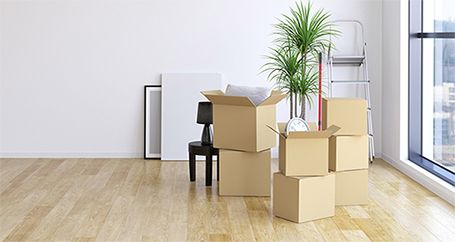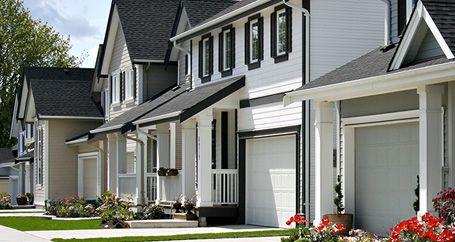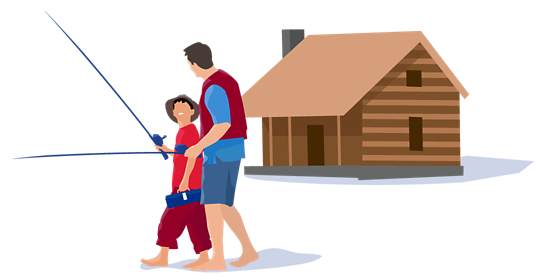Vacation home insurance coverage helps you protect your second home in many of the same ways your homeowners insurance policy helps you protect your primary residence, but it is purchased as a separate policy. Why? Because homes that are not occupied full-time are considered higher risk — more vulnerable to theft and small problems (like a frozen or broken pipe) causing major damage if no one is home to notice. And if you rent out your second home as a short- or long-term rental, you may want additional coverage.
What does vacation home insurance cover?
Like homeowners insurance, second home insurance policies generally include three types of coverage:
Dwelling coverage helps pay for repairs if events like a household fire, lightning, storms or high winds damage your home.
Personal property coverage helps you replace your furniture, electronics, clothes and other belongings if they’re damaged, destroyed or stolen.
Personal liability protection helps pay for medical and legal costs if someone is injured or their personal property is damaged and it’s your fault.
Standard policies for second homes, like home insurance, typically do not cover damage from floods or earthquakes, but special coverage may be available for common risks in your area.
How is vacation home insurance different from homeowners insurance?
Insurance companies often view vacation homes, like vacant homes, as higher risk for certain kinds of damage, because small problems like leaks can do more harm if left untended for long stretches. Vacation homes also tend to be more susceptible to burglary or vandalism when they’re not in use. That can mean a difference in insurance premiums between your home and your vacation home.
A second-home policy is designed to cover losses caused by specific perils named in the policy, such as fire or water damage. Many homeowners policies for primary residences cover damage unless the cause is specifically excluded. Higher-risk perils like vandalism may need additional coverage in a vacation home policy.
Does second-home insurance cover me if I rent out my vacation home?
A second or vacation home insurance policy typically does not cover losses if the property is damaged by renters. Renting comes with additional risks, and a rental home needs its own coverage. Coverage varies depending on whether you’re renting your second home out for just a few days at a time or if you have a tenant for many months — say from fall to spring, when you’re not planning to be there.
Short-term rentals (rented for less than 30 days) may need extra coverage added to your second-home policy; long-term rentals (rented for 30 days or more) may need a separate landlord or business-related policy.
How much does vacation home insurance cost?
Second or vacation home insurance costs vary according to an array of factors, including these:
Location. Homes in areas where the weather gets extreme — think blizzards, tornadoes, hurricanes — tend to cost more to insure.
How you use your property and how often you’re there. If you plan to use your vacation home as a rental, you may need additional insurance. If you only spend a few months of the year in your second home, your burglary, vandalism and fire risks increase, which may affect the cost of your premium.
Age and condition: An older home that’s not well maintained can mean a higher premium.
Property type and amenities: A sprawling, modern home on a lake typically costs more than a rustic, cozy cabin in the woods, which affects the cost of insurance. Extras like a pool can add to insurance costs. But a property protected by a homeowners association is considered to have better security, which can lower premiums.
Bundling your insurance. Discounts can lower your costs and may be available when you buy multiple policies from Farmers®.
Learn From Experience
Read more about owning a vacation home and other home safety stories from homeowners, homebuilders and pros who have seen it all.
When Would a Homeowner Want to Consider Vacant Home Insurance?
Generally, your home is considered vacant if it’s left empty for 30 to 60 days or more. Most typical homeowner policies won’t provide full coverage for the property once it’s been vacated. Vacant home insurance can be purchased to help.

Why Did My Homeowners Insurance Go Up?
First, it’s important to know insurance premiums are calculated based on two major factors: your overall risk and the cost to replace your home. When outside forces — think: inflation, natural disasters, supply chain issues, rising construction costs — impact either (or both) of those factors, it can explain why rates may be increasing. But there are steps you can take to help keep your costs down.

How Can Insurance Help Me Prepare for a Flood Disaster?
Depending on the coverages you select, flood insurance can provide coverage for the cost to repair your home and replace its contents if there’s a flood. Just remember that your regular home insurance generally doesn’t cover flooding — you must have separate flood policy to have coverage.

